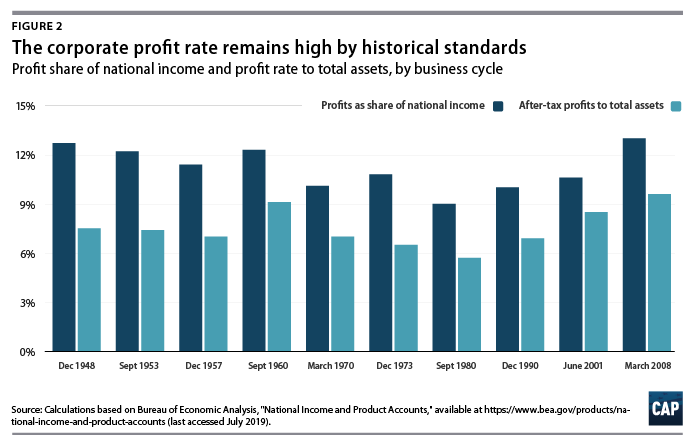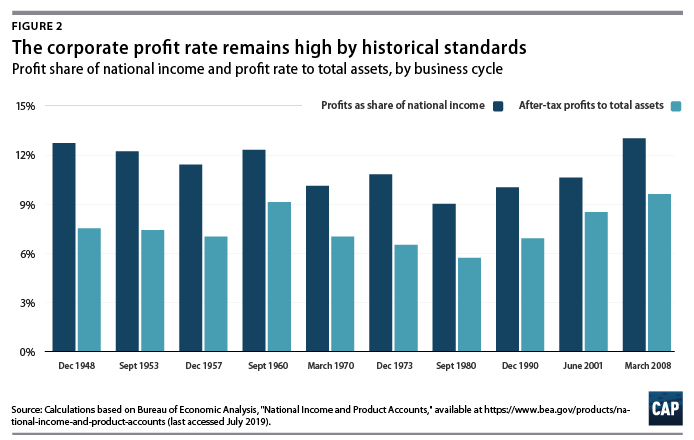It’s astonishing to realize that nearly 70% of Americans have more trust in businesses than in government to drive positive change. This statistic highlights the immense responsibility that corporate governance carries in shaping the U.S. economy. Effective governance not only ensures accountability but also drives sustainable growth and stakeholder trust.
Historically, robust corporate governance has been a cornerstone of economic stability in the U.S. Strong governance frameworks can mitigate risks while promoting ethical business practices. In turn, a well-governed corporation often leads to enhanced economic performance and investor confidence.

Defining Corporate Governance
Corporate governance refers to the system of rules, practices, and processes by which a company is directed and controlled. It involves balancing the interests of a company’s many stakeholders, such as shareholders, management, customers, suppliers, and the community. Good corporate governance ensures accountability and transparency.
Effective corporate governance can lead to strong financial performance. Companies with good governance are more likely to gain investor trust. This can result in higher investment and sustainable growth.
There are several key principles in corporate governance. These include fairness, accountability, transparency, and responsibility. These principles help guide the actions of a company and its board of directors.
Corporate governance also includes a set of mechanisms. These ensure the integrity of the decision-making process in a company. Common mechanisms are internal controls, performance measurement, and regulatory compliance.
The Historical Influence of Corporate Governance on U.S. Economy
Corporate governance has played a crucial role in shaping the U.S. economy. Over the years, governance practices have evolved to meet the needs of a changing economic landscape. Key reforms have often followed major corporate scandals.
Early Development of Corporate Governance
In the early 20th century, governance practices were relatively informal. Companies were mostly controlled by a few wealthy individuals. This led to abuses of power and financial mismanagement.
Over time, regulations began to emerge. The Securities Act of 1933 and the Securities Exchange Act of 1934 were significant milestones. They aimed to protect investors and ensure fair practices.
These laws laid the foundation for modern corporate governance. They required companies to provide transparent financial information. They also aimed to prevent fraud and insider trading.
Corporate Scandals and Reforms
Major corporate scandals have often led to significant governance reforms. The Enron scandal in 2001 is a notable example. It highlighted the need for stricter regulations and oversight.
In response, the Sarbanes-Oxley Act was passed in 2002. This law aimed to improve corporate accountability and financial transparency. It introduced new reporting requirements and penalties for misconduct.
These changes significantly impacted the U.S. economy. They restored investor confidence and promoted more ethical business practices. This helped to stabilize the financial markets.
Modern Corporate Governance Trends
Today, corporate governance continues to evolve. Companies are increasingly focused on sustainability and social responsibility. These aspects are now considered essential components of good governance.
Technological advancements also play a role. New tools and platforms allow for greater transparency and accountability. These innovations help companies adhere to governance standards more effectively.
Overall, the historical evolution of corporate governance has contributed to a more stable and robust U.S. economy. Future trends will likely continue this positive trajectory. They will address new challenges and opportunities.
How Corporate Governance Affects the Economy
Corporate governance can significantly influence the economy. Good governance practices lead to sustainable business growth and stability. They help build investor confidence and attract capital.
When companies adopt strong governance standards, they tend to perform better financially. This can boost overall economic performance. It also encourages ethical business conduct, reducing fraud and corruption.
Poor governance can have negative effects. It may result in financial scandals and economic downturns. Investors may lose trust and withdraw their investments.
Effective corporate governance also promotes fair competition. It ensures a level playing field for all businesses. This fosters innovation and enhances economic growth.
Corporate Governance and Financial Market Confidence
Corporate governance plays a vital role in boosting financial market confidence. Investors are more likely to trust and invest in companies with solid governance practices. This trust helps stabilize financial markets.
Transparency is a key factor in market confidence. When companies disclose accurate financial information, investors can make informed decisions. This reduces the risk of investment and increases market participation.
Effective governance also involves accountability. Boards of directors must ensure that management acts in the best interest of shareholders. This can prevent mismanagement and fraud, further enhancing investor confidence.
Companies with strong governance tend to have better financial performance. This leads to higher stock prices and greater returns for investors. A well-governed company is often seen as a safer investment.
Global investors often look for strong governance when choosing where to place their capital. U.S. companies with high governance standards attract international investments. This inflow of capital can enhance the overall economy.
Weak corporate governance can erode market confidence. Financial scandals and poor management practices can lead to market instability. Investors may withdraw their funds, causing economic disruptions.
Role of Corporate Governance in Risk Management
Corporate governance is crucial in identifying and managing risks within a company. Good governance helps create a framework for recognizing potential threats early on. This proactive approach can mitigate many issues before they escalate.
Effective risk management involves several key practices. These include setting up internal controls, conducting regular audits, and ensuring compliance with laws and regulations. These actions help reduce the risk of financial loss and legal penalties.
Board members play a vital role in risk oversight. They must ensure that management has the right tools and strategies to handle risks effectively. Their guidance can prevent costly mistakes and enhance company resilience.
Companies with strong governance often implement robust risk management policies. They use data analytics to monitor risk factors and make informed decisions. This leads to more stable and sustainable business operations.
Transparency is another important aspect of risk management. Companies must communicate their risk strategies to stakeholders clearly. Open dialogue builds trust and ensures everyone understands the company’s risk posture.
In summary, corporate governance and risk management are closely linked. By maintaining high governance standards, companies can effectively manage risks and improve their overall performance. Proper risk management safeguards the interests of all stakeholders.
Corporate Governance and Ethical Business Practices
Corporate governance plays a fundamental role in promoting ethical business practices. It ensures that companies operate with transparency and fairness. This fosters trust among stakeholders.
Clear governance policies set the standards for ethical behavior. Boards of directors are responsible for upholding these standards. This accountability helps prevent misconduct and fraud.
Ethical business practices include honesty, integrity, and respect for stakeholders. These principles guide decision-making processes. They help companies build a positive reputation and long-term success.
- Treating employees fairly
- Ensuring product safety
- Maintaining environmental responsibility
Strong governance also involves regular monitoring and evaluation. Companies must assess their practices and make improvements. This continuous process reinforces ethical standards.
Ultimately, corporate governance and ethical practices are interconnected. Good governance leads to ethical behavior, which in turn supports robust business performance and stakeholder trust.
The Regulatory Environment of Corporate Governance
The regulatory environment of corporate governance shapes how businesses operate. It includes rules and laws that companies must follow to ensure fair practices. These regulations aim to protect investors and stakeholders.
The Sarbanes-Oxley Act is a key piece of legislation in the U.S. It was enacted in 2002 to improve corporate accountability. This law introduced stringent reporting requirements for public companies.
Regulatory bodies like the Securities and Exchange Commission (SEC) oversee corporate governance standards. They enforce compliance with financial reporting and disclosure requirements. Their role is crucial in maintaining market integrity.
- Ensuring accurate financial statements
- Preventing insider trading
- Protecting shareholder rights
Companies must also adhere to industry-specific regulations. For example, banks have additional governance rules set by federal agencies. These specialized regulations address unique risks in different sectors.
A well-regulated environment promotes investor confidence and economic stability. Strong governance laws help prevent corporate scandals and financial crises. This fosters a healthier economy for everyone involved.
Future of Corporate Governance in the U.S. Economy
The future of corporate governance in the U.S. economy looks promising and dynamic. With rapid technological advancements, companies are adopting new governance tools. These tools enhance transparency and accountability.
Sustainability is becoming a key focus for corporate governance. Companies are increasingly committed to environmental and social responsibilities. Investors are also prioritizing sustainability in their investment decisions.
Artificial intelligence (AI) and big data are revolutionizing governance practices. These technologies help in risk management and compliance monitoring. They provide insights that lead to more effective decision-making.
- Predicting financial risks
- Ensuring regulatory compliance
- Enhancing shareholder engagement
Globalization is another factor shaping the future of corporate governance. U.S. companies must adhere to international governance standards. This enhances their competitiveness in the global market.
Overall, the focus will be on creating more robust and adaptive governance frameworks. These frameworks will address emerging challenges and opportunities. They will help maintain a stable and thriving U.S. economy.
Frequently Asked Questions
Corporate governance plays a crucial role in shaping the U.S. economy by ensuring transparency, accountability, and ethical management. Let’s explore some common questions about how it impacts various aspects of business and economic performance.
1. How does corporate governance attract investment?
Effective corporate governance builds investor trust. When companies are transparent and accountable, investors feel more secure putting their money in them.
This confidence leads to increased capital inflow, driving growth and innovation within the company. As a result, well-governed companies tend to perform better economically.
2. What are the key principles of corporate governance?
The key principles of corporate governance include fairness, accountability, transparency, and responsibility. These principles ensure that companies operate ethically and in the best interest of all stakeholders.
Adhering to these principles helps prevent fraud and mismanagement while promoting long-term success. They serve as a foundation for building strong corporate structures and cultures.
3. How can poor corporate governance affect a company?
Poor corporate governance can lead to financial scandals and loss of investor confidence. It often results in mismanagement, fraud, and legal issues that harm the company’s reputation.
This instability can cause significant financial losses and even lead to bankruptcy. Additionally, it may deter future investors from placing their capital in such organizations.
4. What role does technology play in modern corporate governance?
Technology enhances transparency and efficiency in corporate governance. Tools like data analytics help monitor compliance and identify potential risks early on.
AI helps automate routine tasks, ensuring consistent application of governance policies. This technological integration makes it easier for companies to maintain high standards of accountability.
5. Why is ethical business practice important in corporate governance?
Ethical business practices build trust among stakeholders including employees, customers, and investors. Companies known for ethics are more likely to attract loyal customers and dedicated employees.
This positive reputation leads to long-term sustainability and success while reducing the risk of legal problems or scandals that could damage the company’s standing.
Conclusion
Corporate governance is essential for a thriving U.S. economy. Its principles of transparency, accountability, and ethical management build trust and attract investment. This foundation leads to sustainable growth and financial stability.
As companies continue to embrace these governance standards, they will navigate challenges more effectively. Future advancements in technology and a focus on sustainability will further enhance corporate governance. Ultimately, strong governance is key to economic resilience and prosperity.

